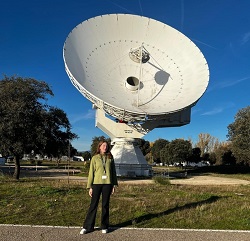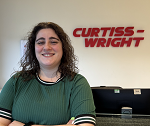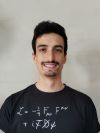
After graduating with my bachelors in astrophysics, I was unsure what direction I wanted to go in, but I knew I wanted to stay within the space sector. The masters gave me an opportunity to gain an understanding of the space industry and how space missions work while still developing knowledge in areas I previously hadn’t been able to explore.
The programme struck a great balance between theory and hands-on work. Building and testing a miniature satellite in the subsystems module was both challenging and rewarding, and the chance to take electives like planetary geomorphology gave me skills and insights I wouldn’t have gained otherwise.
One of the most rewarding experiences during the masters was being able to take part in an internship as part of the degree, which I feel is not that common among Space Science/Physics programmes. I had the opportunity to do my internship at the European Space Astronomy Centre in Madrid, which was incredible for building experience and gaining first-hand insight into how a large-scale space organisation operates.
In my current role as a PhD student, working on instrumentation for the Rosalind Franklin rover, I am using knowledge and skills from almost every course I took. Through the masters I gained not only technical expertise, but also problem solving, adaptability, and the ability to work effectively in a team under tight deadlines.





